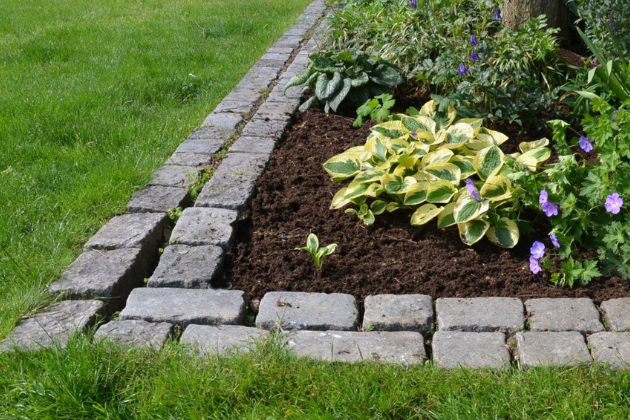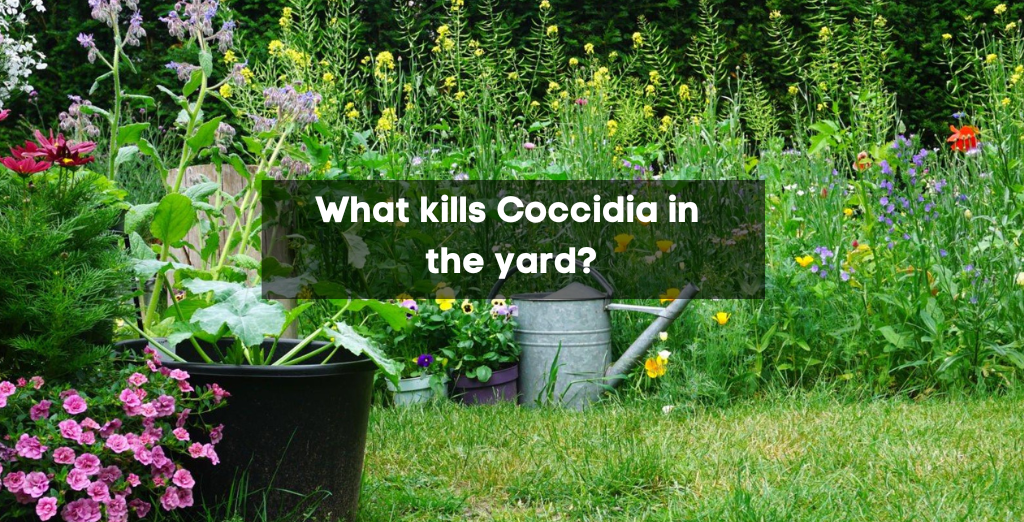Coccidia, tiny parasites that infect the intestines of animals, can be a persistent problem in yards and gardens.
While these tiny invaders can cause discomfort and illness in pets and wildlife, fear not! With the right tools and techniques, it is possible to eradicate them and create a coccidia-free oasis in your outdoor space.
So, buckle up and get ready to discover the secret weapons that will kill these pesky parasites and restore balance to your yard.
What is Coccidia in the Yard?
Coccidia in the yard is a type of parasite that infects the intestines of animals and can cause symptoms ranging from mild discomfort to severe illness.
These tiny invaders can persist in warm, humid environments and are spread through contaminated soil, water, or feces.
To keep your yard and pets safe, monitor and clean the area regularly and implement effective control measures, such as proper sanitation.
Keep Coccidia from taking over your outdoor oasis – take action and keep it a healthy and safe haven for all.
What kills Coccidia in the yard?
Coccidia is typically killed by chemical treatments such as insecticides, fungicides, and herbicides.
These treatments should be applied according to the instructions on the product label.
Additionally, good sanitation practices such as removing debris, mowing the lawn regularly, and keeping the area free of standing water can help reduce the risk of coccidia infestation.
Methods to kill Coccidia in the yard
Remove any standing water
Remove any standing water or areas of moisture in the yard.
Coccidia thrives in moist environments, so eliminating any standing water or humidity areas will help reduce the risk of coccidia infestation.
Mow the grass regularly
Mow the grass regularly. Keeping the grass short will reduce the shade and moisture in the yard, making it less hospitable to Coccidia.
Apply a pesticide
Apply a pesticide to the yard. There are several pesticides available that are specifically designed to kill Coccidia. Be sure to follow the instructions on the label carefully.
Use a dewormer
There are several dewormers available that are specifically designed to kill Coccidia. Be sure to follow the instructions on the label carefully.
Clean up animal waste
Clean up any animal waste in the yard.
Animal waste can contain Coccidia, so cleaning up any animal waste in the yard is essential to reduce the risk of coccidia infestation.
Use a disinfectant
There are several disinfectants available that are specifically designed to kill Coccidia. Be sure to follow the instructions on the label carefully.
Life Cycle of Coccidia
The life cycle of Coccidia involves four stages: sporulation, oocyst, sporozoite, and merozoite. During sporulation, the Coccidia produce oocysts, resistant to environmental conditions, and can survive long periods.
The oocysts are then ingested by a host, such as a bird or a mammal, and the sporozoites are released. The sporozoites then migrate to the host’s intestinal wall, developing into merozoites.
The merozoites then invade the host’s cells, reproducing and forming new oocysts. The oocysts are then released in the host’s feces, and the cycle begins again.
Prevention of Coccidia Spread in the Yard
Coccidia, the pesky parasites that infect the intestines of animals, can be difficult to control in the yard.
Still, with the right approach, it’s possible to prevent their spread and maintain a healthy outdoor environment for pets and wildlife.
Here are some critical steps for preventing the spread of Coccidia in the yard:
- Clean up after your pets: Clean up after your pets immediately and dispose of their waste in a sealed bag.
- Keep your yard clean: Regularly mow your lawn and remove any debris or standing water that may be present.
- Use preventative medications: Ask your veterinarian about preventive medications that can help reduce the risk of Coccidia spread in your yard.
- Disinfect surfaces: Disinfect any surfaces your pet may have come into contact with, such as kennels, toys, and bedding.
- Separate pets: If possible, keep pets infected with Coccidia separated from other pets in the yard.
- Monitor your pet: Monitor your pet for any signs of coccidia infection and seek veterinary care if necessary.
Effective Treatments for Coccidia
Coccidia, the tiny parasites that infect the intestines of animals, can cause serious health problems if left untreated.
Fortunately, various effective treatments are available to help control and eliminate coccidian infections.
Here are some of the most common and effective treatments for Coccidia:
Medications
Antiparasitic drugs such as sulfonamides, amprolium, and toltrazuril can effectively treat coccidian infections.
These medications work by disrupting the parasite’s life cycle and stopping its replication in the host’s intestines.
Probiotics
Supplementing the diet with beneficial bacteria, such as probiotics, can help boost the host’s natural defenses against Coccidia and reduce the severity of symptoms.
Immune support
Supporting the host’s immune system through diet, supplements, and other treatments can help reduce the severity of symptoms and increase the effectiveness of antiparasitic medications.
Environmental control
Maintaining a clean and well-sanitized environment, such as the yard or living quarters, can help prevent the spread of Coccidia and reduce the risk of reinfection.
Prevention
Taking steps to prevent the spread of Coccidia, such as regular sanitation and isolation of infected pets and animals, can help prevent outbreaks and reduce the risk of infection.
Natural Remedies to Kill Coccidia in the Yard
For those seeking a more natural approach to controlling Coccidia in the yard, several effective remedies can help eliminate these pesky parasites.
Here are some of the best natural remedies for killing Coccidia in the yard:
- Use a mixture of garlic and water to spray the yard. Garlic has natural antiparasitic properties that can help kill Coccidia.
- Use diatomaceous earth to sprinkle around the yard. This natural powder is made from fossilized algae and is effective at killing parasites.
- Plant marigolds in the yard. Marigolds have natural insecticidal properties that can help kill Coccidia.
- Use neem oil to spray the yard. Neem oil is a natural insecticide that can help kill Coccidia.
- Introduce beneficial nematodes to the yard. These microscopic worms feed on Coccidia and can help reduce their numbers.
Chemical Options to Eliminate Coccidia
For those looking for a more heavy-duty solution to eliminating Coccidia in the yard, there are several chemical options available.
Here are some of the most effective chemical treatments for killing Coccidia:
- Use a chemical pesticide to kill Coccidia, such as fenbendazole or amprolium.
- Apply a fungicide to the yard to kill the Coccidia.
- Use a chemical larvicide to kill the larvae of the Coccidia.
- Apply a chemical insecticide to the yard to kill adult coccidia.

Best Practices for Maintaining a Coccidia-Free Yard
Maintaining a coccidia-free yard is essential for the health and safety of your pets and family.
Here are some best practices to help keep your yard free of Coccidia:
- Clean up after your pets. Make sure to pick up and dispose of pet waste immediately.
- Keep your yard free of standing water. Coccidia can survive in standing water, so keep your yard free of puddles and other sources of standing water.
- Mow your lawn regularly. Mowing your lawn regularly will help to keep the grass short and reduce the number of places where Coccidia can hide.
- Use a dewormer. Regularly deworming your pets can help to reduce the number of Coccidia in your yard.
- Disinfect your yard. Disinfecting your yard with a bleach solution can help to kill any coccidia that may be present.
- Practice good hygiene. Ensure to wash your hands after handling your pets and their waste, and avoid contact with soil or other areas where Coccidia may be present.
By following these best practices, you can help to keep your yard free of Coccidia and ensure the health and safety of your family and pets.
Video: How to Treat Your Yard for Coccidia
Frequently Asked Questions (FAQ)
Q: What kills Coccidia in the yard?
A: Coccidia can be killed using a chemical pesticide or by introducing natural predators such as chickens or guinea fowl.
Q: How can I prevent Coccidia in my yard?
A: To prevent Coccidia in your yard, keep the area clean and free of animal waste, and avoid over-watering.
Q: What are the symptoms of Coccidia?
A: Symptoms of Coccidia can include diarrhea, weight loss, dehydration, and anemia.
Q: What are some chemical options for killing Coccidia in the yard?
A: Chlorine bleach, quaternary ammonium compounds (QUATs), sodium hypochlorite, and iodine-based disinfectants are some effective chemical options for killing Coccidia in the yard.
Q: Are there any natural remedies for killing Coccidia in the yard?
A: Yes, vinegar, hydrogen peroxide, and essential oils can help kill Coccidia in the yard.
Q: What steps can be taken to prevent the spread of Coccidia in the yard?
A: Regular cleaning and disinfection, isolation of infected pets, good hygiene practices, and regular use of disinfectants can help prevent the spread of Coccidia in the yard.
Q: How do I know if my pets or animals are infected with Coccidia?
A: Symptoms of coccidia infection in pets and animals include diarrhea, vomiting, and weight loss. If you suspect that your pets or animals are infected, consult a veterinarian for a proper diagnosis and treatment.
Q: What are the long-term effects of coccidia infection in pets and animals?
A: Coccidia infection can lead to chronic health problems, such as malnutrition and dehydration, weakening the immune system and making the animal more susceptible to other diseases.
Final Words
In conclusion, there are various methods for killing Coccidia in the yard, including chemical options such as chlorine bleach and QUATs and natural remedies such as vinegar and hydrogen peroxide.
Preventive measures, such as regular cleaning and disinfection, good hygiene practices, and isolation of infected pets, can also help prevent the spread of Coccidia in the yard.
It is essential to monitor pets and animals regularly for symptoms of infection and to consult a veterinarian, if necessary, to maintain a healthy and safe outdoor environment.


